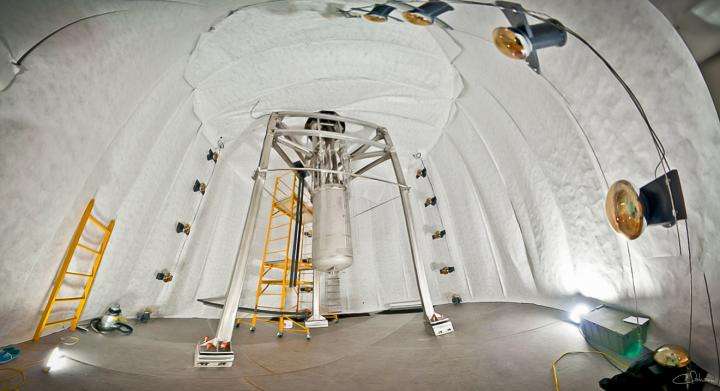Best of Last Week–Dark matter detector finishes its work, donuts took flight and point at which sitting harms your heart

(ScienceX)—It was a good week for physics as a team at MIT found a weird quantum effect that stretches across hundreds of miles—they discovered that neutrinos can be in superposition without individual identities when traveling across great distances. Also, a study by Cambridge professor Ian Hutchings revealed that Leonardo da Vinci's 'irrelevant' scribbles mark the spot where he first recorded the laws of friction—which he subsequently applied to a variety of applications over the following 20 years.
And a team with members from the U.S. and the U.K. announced that they had achieved the first completely scalable quantum simulation of a molecule—using the variational quantum eigensolver to create and solve one of the first real-world quantum computer applications. In not-so-good news, a team working at the world's most sensitive dark matter detector completed their search. Workers at the Large Underground Xeno experiment in South Dakota reported that sensitivity of the detector greatly exceeded initial goals, but unfortunately revealed no traces of dark matter.
In technology news, donuts took flight in the first US-approved drone delivery—a startup called Flirtey Inc. conducted the first domestic commercial drone delivery of goods from seller 7-Eleven to a customer in Reno, Nevada. And a team at Delft University announced that they had developed the smallest hard disk to date that writes information atom by atom—it holds just one kilobyte but the technology holds the potential for storing all of the world's books on a disk the size of a postage stamp.
A team at Virginia Tech announced that they developed a way to upsize nanostructures into light, flexible 3-D printed materials. And Jennie Connor with New Zealand's Otago University, offered a new review that concluded that the evidence for alcohol causing cancer is strong—her results came after conducting a thorough review of the existing epidemiological evidence. Also, an international team of researchers working with data from several earthbound telescopes and NASA's K2 mission reported that data from the Kepler telescope confirmed more than 100 planets in a single trove, which included a system with four planets all similar to Earth.
And finally, if you are one of the millions of people around the world who tend to sit for most of your day, you might want to take note of a new study in which a team of researchers in the U.S. discovered the point at which maximum sitting time starts to harm your heart, which leads to cardiovascular disease.
© 2016 ScienceX